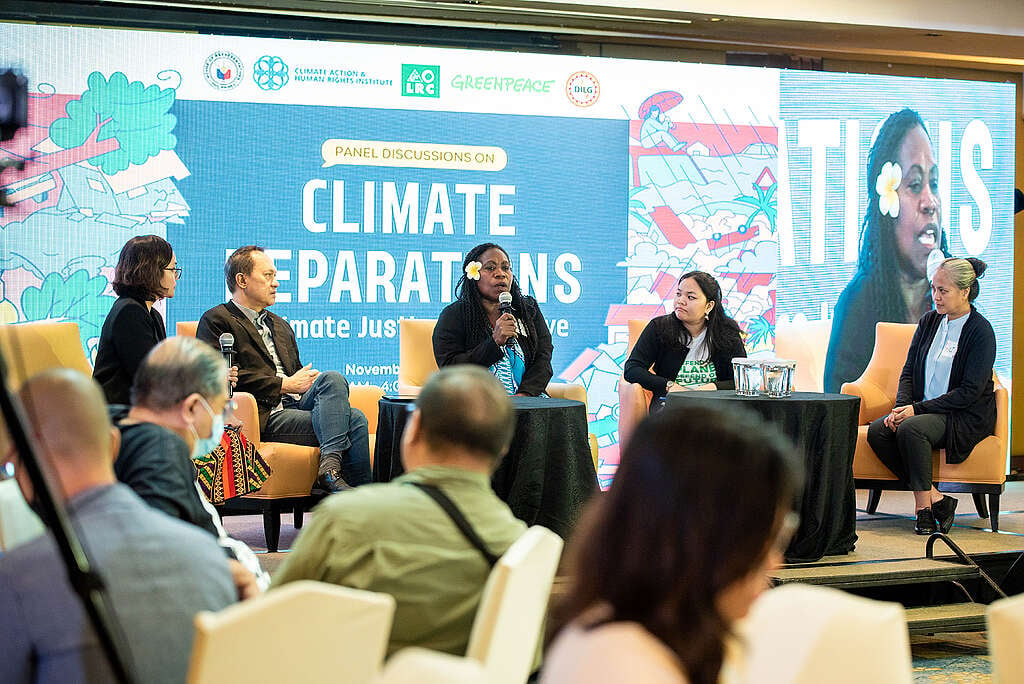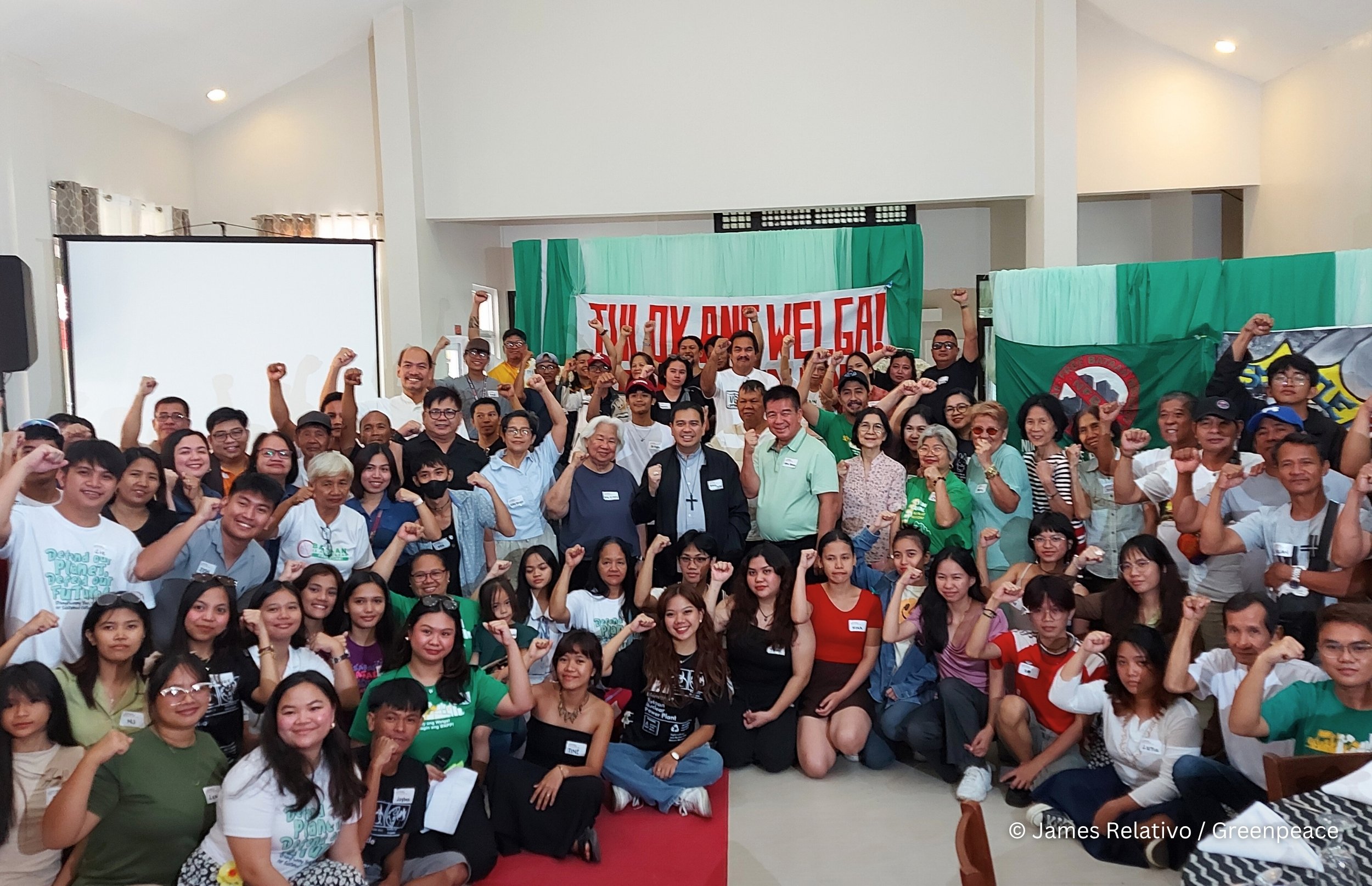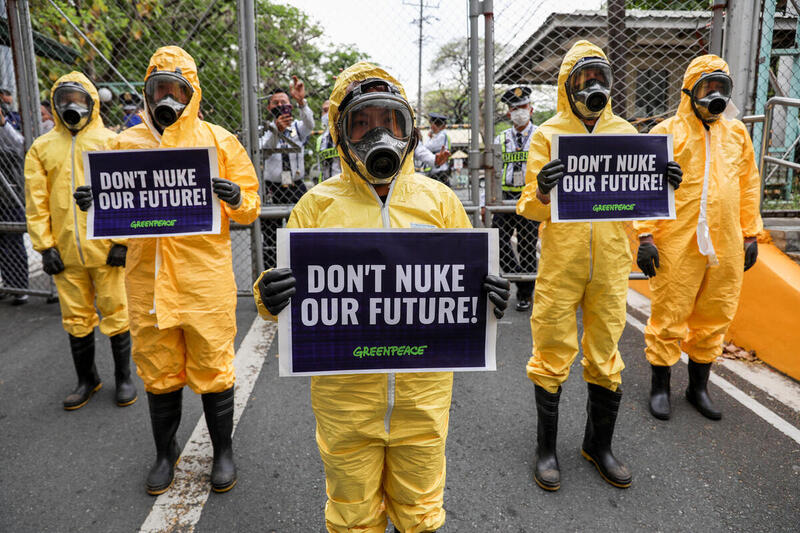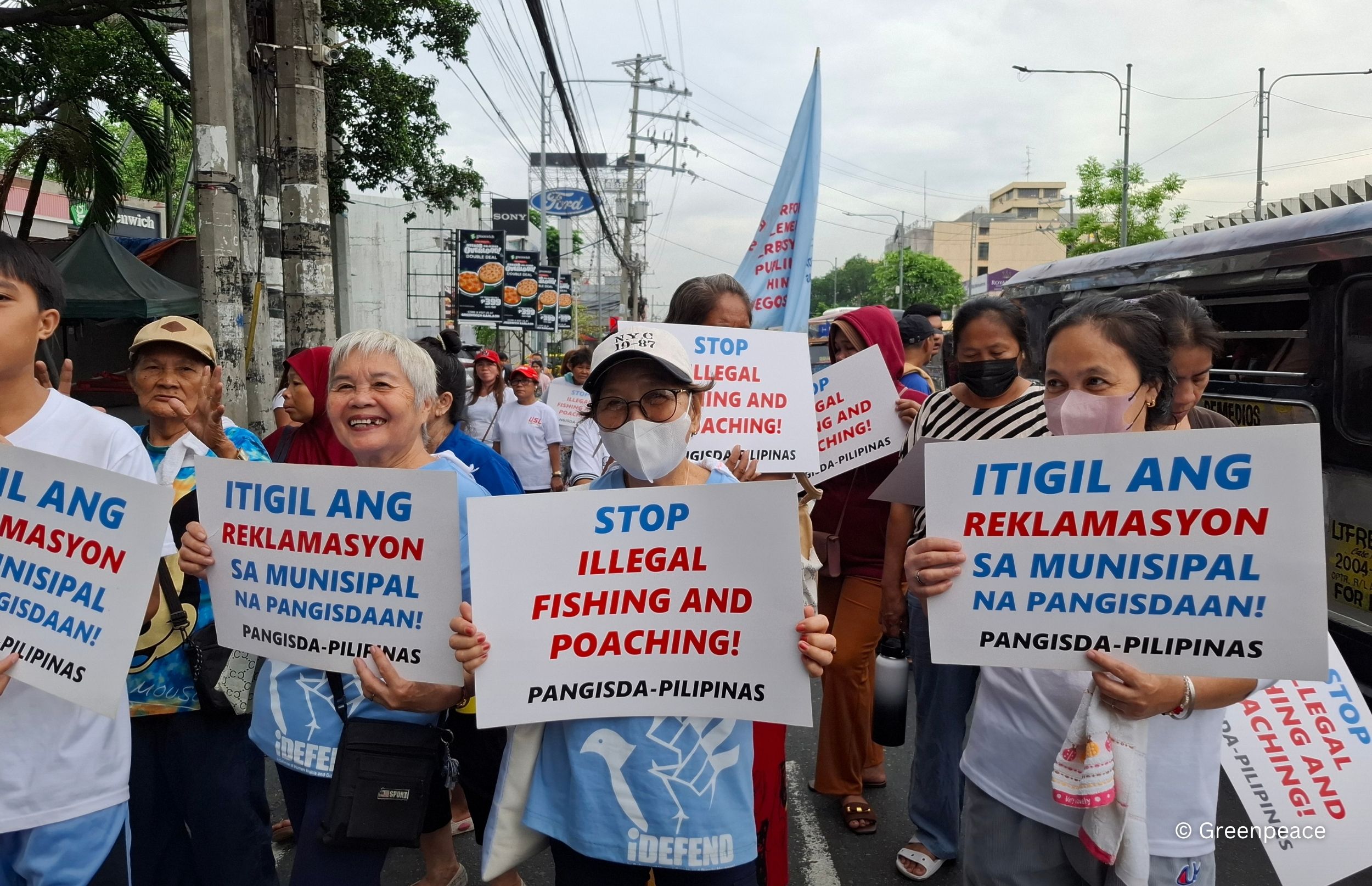The panel discussions on CLIMATE REPARATIONS:A CLIMATE JUSTICE IMPERATIVE was held offline and online last November 23, 2023 and was co-presented by Greenpeace Philippines, Climate Action and Human Rights Institute (CAHRI), Legal Rights and Natural Resources Center (LRC), and the House Committee on Climate Change chaired by Cong. Edgar M. Chatto, Representative of the 1st District of Bohol.

As COP28 nears, the call for climate justice and the fulfillment of climate financing pledges becomes increasingly vital. This year’s United Nations Climate Change Conference, which focuses on emissions reduction, highlights the critical issue of loss and damage, thereby expanding the role of governments, civil society, and the private sector in these discussions.
The emphasis on climate justice is essential, especially since those contributing least to the climate crisis are the most affected by its consequences. This imbalance exacerbates social and economic inequalities and underscores the need for swift, concrete, and substantial climate action. The IPCC AR6 reinforces this, emphasizing the need for strong political commitments to implement scientifically-based solutions that respond to the actual experiences of communities impacted by climate change. It is crucial for policymakers to not only understand but also integrate the knowledge and aspirations of these communities into their decision-making processes.
Responding to this need, Greenpeace Philippines, the House Committee on Climate Change chaired by Rep. Edgar M. Chatto of the First District of Bohol, Climate Action and Human Rights Institute (CAHRI), and the Legal Rights and Natural Resources Center (LRC) organized panel discussions on 23 November 2023 to provide a platform for impacted communities to voice their experiences directly to policymakers and the private sector. These discussions are instrumental in shaping effective, informed, and relevant policies and programs, aligning them more closely with the needs and realities of those most affected by climate change.
Over 100 onsite and 600 online participants from the local government units, including local chief executives and government officers, the House of Representatives Committee Secretariat and Staff, civil society organizations, and community representatives, actively participated in the event.
Community leaders Anne Pakoa of Vanuatu and Jochelle Magracia of Bataan, Philippines, were joined by Dr. Elizabeth Stern of KlimaSeniorinnen-Switzerland to share how communities stand up to claim climate justice.
Former Focal Commissioner on the National Inquiry on Climate Change Investigations and the Founding President of the Climate Action and Human Rights Institute (CAHRI, Atty. Roberto Cadiz, Dr. Atnike Nova Sigiro, Chairperson, National Commission on Human Rights, Indonesia, and Atty. Mai Taqueban, Executive Director of Legal Rights and Natural Resources Center, discussed Advancing access to redress through Human Rights Institutions.
Atty. John Colin Yokingco, Conservation International, moderated the last panel of discussants about climate accountability. Atty. Eline Zeilmaker, Senior Legal Advisor Climate Case Shell, shared about the Milie�nsie vs Royal Dutch Shell case. At the same time, Mayor Rochelle Mergal of the Municipality of Salcedo, Eastern Samar, presented a groundbreaking resolution that seeks to hold entities accountable for contributing to climate change and empowers the mayor to implement climate action recommendations. Ms. Kaisa Kosonen, COP28 Delegation Lead Greenpeace International, discussed COP28 while Atty. Ryan Roset of the Legal Rights and Natural Resources Center discussed the salient provisions of the Climate Accountability (CLIMA) Bill. Cong. Edgar Chatto of the First District of Bohol and the Chair of the House Committee on Climate Change announced the filing of the CLIMA Bill towards the end of the event.
The discussions made clear that notable strides have already been made to address the impacts of climate change and its implications on human rights. Yet, they also remind us that our journey is far from over. We are urged to not only sustain our efforts, but to intensify them, fostering a spirit of collaboration across international, domestic, and local levels. This collective action will propel us toward achieving the goals and ambitions that we, ourselves, have set in this race to avert the twin crises of climate change and biodiversity loss, and especially its impacts on human rights.
You will find the documentation including links to the PowerPoint presentations and workshop outputs HERE:
Live streaming on Facebook can be found HERE: Part 1 and Part 2.




Discussion
Thankyou for the knowledge that you shared to me
The importance of climate reparation lies in addressing the urgent need to mitigate and adapt to the impacts of climate change. It involves taking responsibility for past and present greenhouse gas emissions, as well as supporting vulnerable communities and ecosystems affected by climate-related disasters. Climate reparation is crucial for ensuring a sustainable and equitable future, preserving biodiversity, safeguarding human well-being, and promoting global cooperation to combat climate change.